Trying to find someone in Germany? It can be tricky, especially when it is a lost contact, an old acquaintance, or a new person, and an unfamiliar individual. There are several legal and stable ways to locate people in Germany. Whether through online databases or the government archives, this manual describes the process of searching for people under German norms and institutions.
How to Find People in Germany Online Free?
Searching and finding people in Germany online without having to pay any fee is now more common with the use of digital directories and social sites customized to its local users, as well as with the assistance of public databases. The following are the best ways.
With German Online Phone Directory
Das Telefonbuch is a German online phonebook that is free and popular. It assists in the search for persons, landline numbers, addresses and names of individuals in Germany. It is especially handy when you are aware of the last name or the location of that person.
Steps:
- Visit the website.
- Enter the person’s Nachname (last name) in the “Wer” field.
- Add the city or postal code in the “Wo” field.
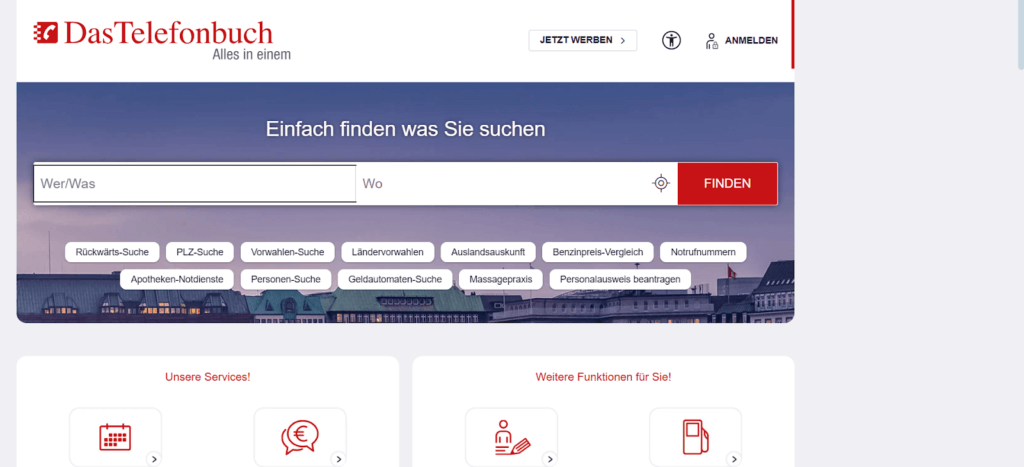
- Click on the search icon or hit enter.
- Browse the list of matching results for contact details.
Use Family Tracing Service
This is one of the humanitarian services offered by the German Red Cross, and it assists families who have been separated due to a war or migration, or disaster, to reunite. It is available at no cost, and it is multilingual. DRK Suchdienst also provides professional help and a safe, confidential mechanism to search missing persons in Germany and overseas, in particular in crisis-affected conditions.
Steps:
- Go to the website.
- Click on “Search Requests.”

- Choose your search criteria and fill in the form.
- Submit your request with as much information as possible.
Via German People Search
Das Ortliche is a trusted people search engine in Germany that enables access to telephone numbers, addresses, etc. It comes in handy, especially when you are aware of a person’s name and city.
The site integrates landline information and the local directory information, which is why it is useful when it is necessary to trace a person according to partial data or regional data.
Steps:
- Go to the website.
- Enter the person’s surname and optional first name.
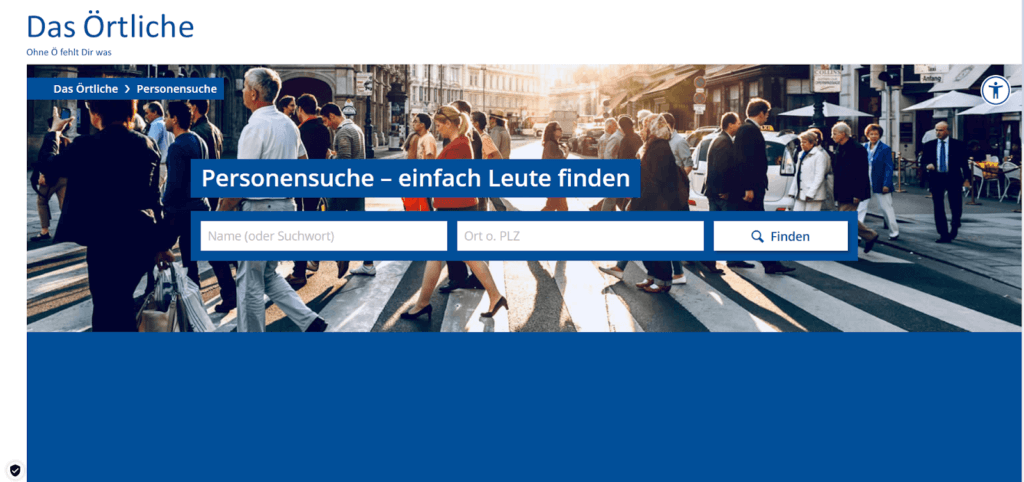
- Add the city or ZIP code if known.
- Click on “Finden” to search.
Search Person by Phone Number
With the Cellphone Location tool, you can do a Germany reverse phone number search and identify the person behind it. The tool will scan public databases and online resources to locate the owner’s name, general location and public social profiles. It’s especially useful for identifying unknown callers or reconnecting with acquaintances.
Steps:
- Visit the website.
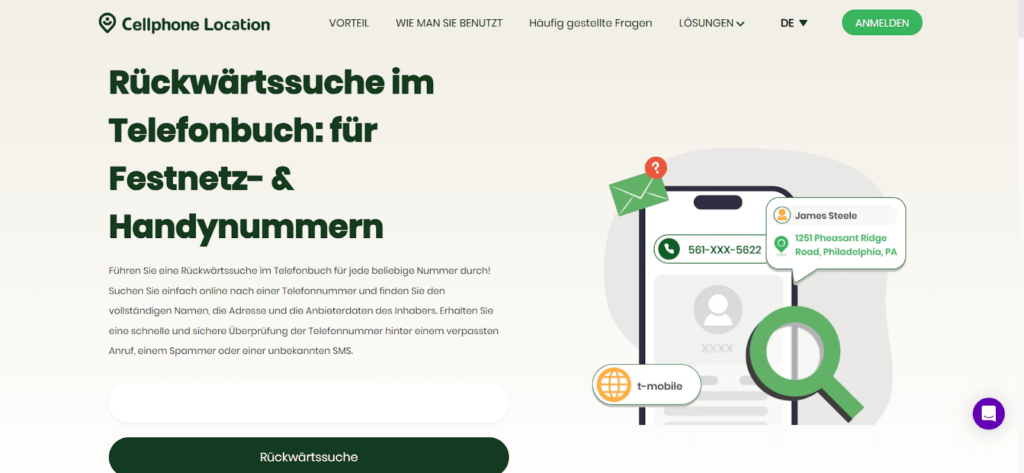
- Enter the full German phone number.
- Enter your email address to receive the details.
- View the approximate location and carrier details.
Use Social Media for People Search
Social platforms are powerful tools for reconnecting with people in Germany. XING is ideal for professionals, while Facebook offers broader personal networks.
XING is Germany’s version of LinkedIn. It’s excellent for finding professionals by name, industry, or region. Great for workplace reconnects or networking.
Steps:
- Visit xing.
- Use the search bar to enter name and company or location
- Filter results using the sidebar options.

- View profiles and contact via messaging if possible.
- You may need to register to see full details.
Facebook can help you locate personal connections or people with shared groups, schools, or cities. You can also post in local Facebook groups for help.
Steps:
- Go to Facebook.
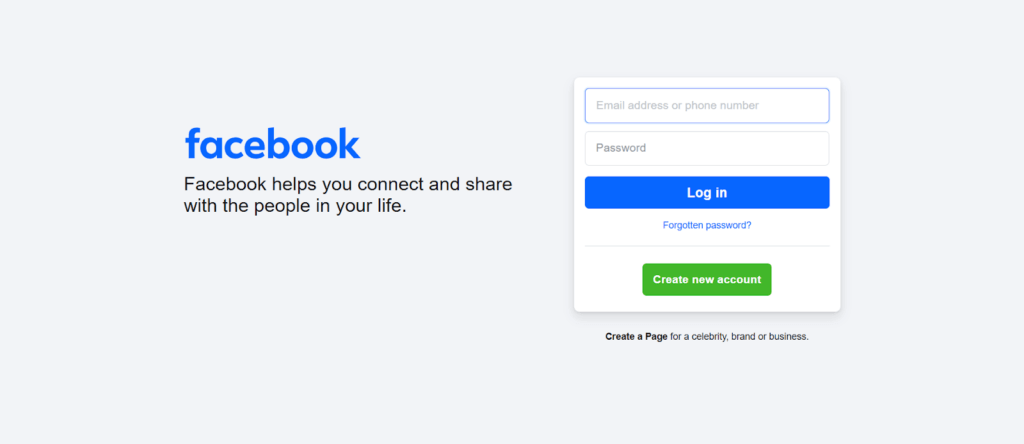
- Type the full name in the search bar.
- Narrow down by filtering with city, school, or mutual friends.
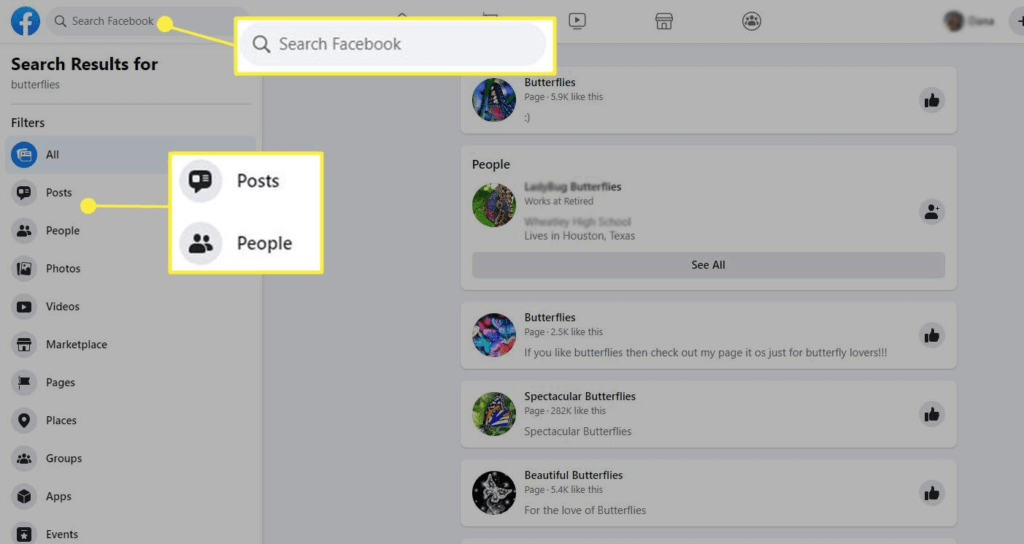
- Browse results and view profiles.
- Send a message or friend request if needed.
Locate a Person in Google
Google remains one of the most powerful and widely used germany people finder tools for finding people online. With the right search terms, you can access a variety of sources—from social media and articles to public records and mentions in directories. It’s free, quick, and easy to use for global searches.
Steps:
- Visit Google.
- Type the full name in quotes, e.g., “Anna Müller”

- Add other keywords like the city or job title.
- Scan results for social media links or directories.
Find People in German Records
Germany keeps detailed public records, many of which can be accessed in-person or through written requests. These sources offer accurate, government-verified information. However, access is often limited to protect privacy.
Einwohnermeldeamt (Resident Registration Office)
Germany’s local registration offices (Einwohnermeldeamt) maintain up-to-date records of residents, including addresses. These records are reliable and useful when you have the last known city of residence. While privacy laws apply, you can request limited information for valid reasons.
Steps:
- Contact the local office in the person’s last known city.
- Provide a reason for the request (e.g., family tracing).
- Submit a formal “Melderegisterauskunft” form.
- Pay a small fee (~€5–10).
Note: You must have a legitimate reason and possibly proof of relation.
Grundbuch (Land Register)
The Grundbuch records property ownership in Germany. If you believe someone owns property in a specific area, this register may help trace them. However, it’s only accessible with legal justification and is often used by heirs, lawyers, or official representatives.
Steps:
- Visit the local land registry (Grundbuchamt).
- Submit a written request with justification.
- Provide details about the person and property.
Note: Access is restricted and often requires legal interest.
Standesamt (Registry Office)
The Standesamt handles vital records such as birth, marriage, and death certificates. These documents can help you do a Germany person search, confirm a person’s details or locate family connections. Access requires a direct relationship and documented interest in the information.
Steps:
- Contact the Standesamt in the person’s place of residence
- Request a certificate or search based on what you need.
- You must prove a legitimate interest and identity.
Bundesarchiv (Federal Archive)
Germany’s Federal Archive holds historical records that include immigration data, military records, and older census-style documents. It’s a powerful tool for tracing people from past generations or finding long-lost family members.
Steps
- Visit Bundesarchiv online.
- Use the search tools or send a written inquiry.
- Provide full details and the purpose of request.
Tips for Searching Locally in Germany
Searching locally in Germany can often lead to better results than online methods, especially when looking for older records or individuals with limited digital presence. Here’s how to go about it:
- Visit local archives and libraries. These institutions hold historical data, census records, and even local newspapers that may mention the person you’re searching for. Staff may also assist with search tools.
- Ask neighbors or nearby businesses. If the individual lived in the area recently, neighbors or shopkeepers may remember them or know forwarding details. Germans generally respond well to respectful, polite inquiries.
- Use regional forums like nebenan.de. This is a neighborhood social network where locals share updates, ask questions, and help each other. Posting a request here can yield valuable leads.
- Check bulletin boards. In small towns, bulletin boards in bakeries or town halls often carry personal notices. Keep your request short and clear.
FAQ
How do I find my relatives in Germany?
Use the DRK Tracing Service, contact local registry offices (Einwohnermeldeamt), and check church or archival records if it’s a historical search.
How do I find a specific person on the Internet?
Use directories like Das Telefonbuch or social platforms like XING. Searching on Google.de with detailed information often gives good results.
Can the embassy help me locate a person in Germany?
Only in exceptional cases, such as emergencies. The embassy may assist with welfare checks or legal matters but not personal searches without valid reason.
Conclusion
Finding someone in Germany is possible through various online tools, official channels, and community methods. Whether you’re tracing a lost friend or connecting with family, start with public directories and move to formal requests when needed. Always follow German data privacy laws and respect people’s right to confidentiality while searching.